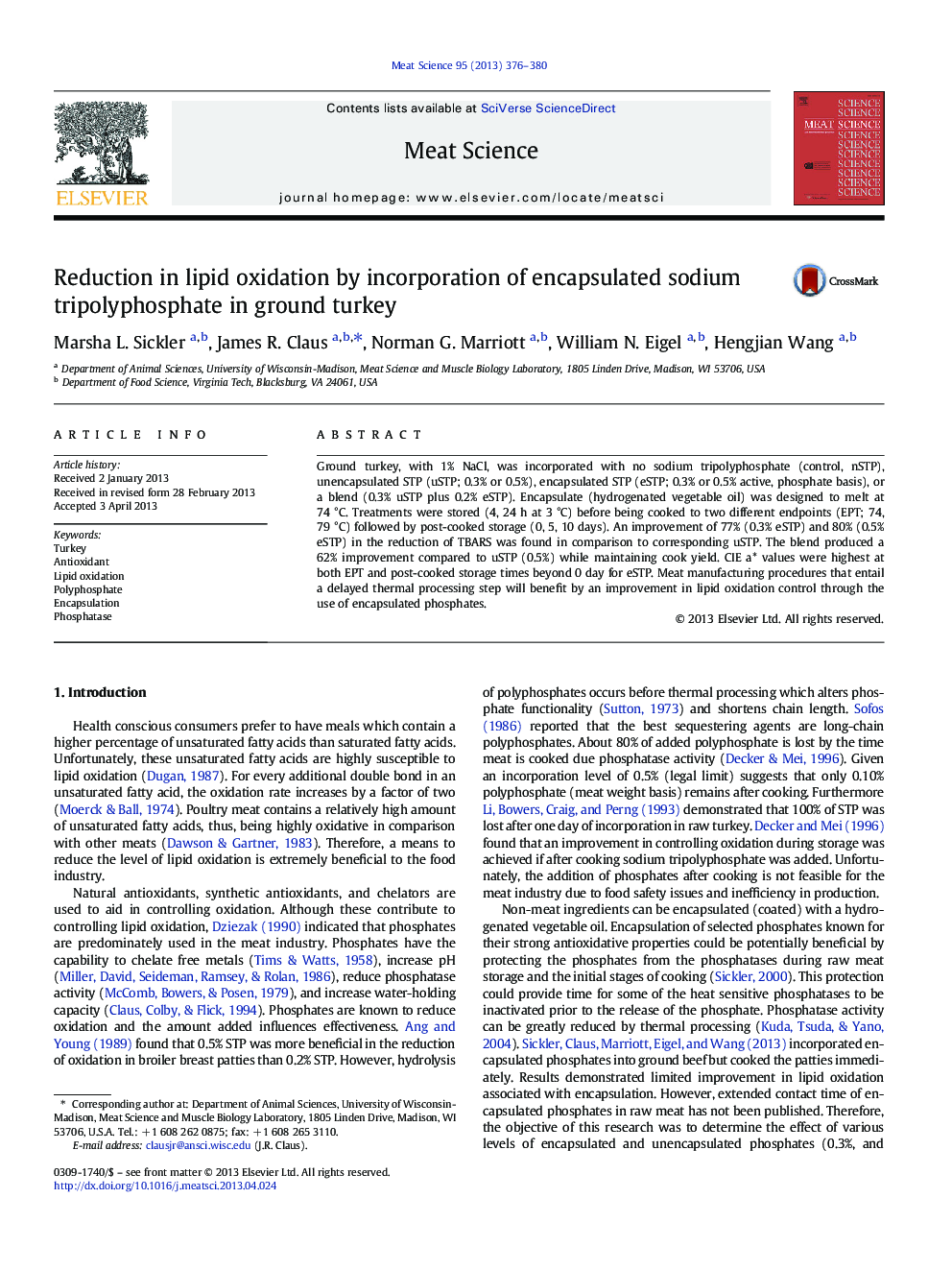| Article ID | Journal | Published Year | Pages | File Type |
|---|---|---|---|---|
| 5791702 | Meat Science | 2013 | 5 Pages |
Abstract
Ground turkey, with 1% NaCl, was incorporated with no sodium tripolyphosphate (control, nSTP), unencapsulated STP (uSTP; 0.3% or 0.5%), encapsulated STP (eSTP; 0.3% or 0.5% active, phosphate basis), or a blend (0.3% uSTP plus 0.2% eSTP). Encapsulate (hydrogenated vegetable oil) was designed to melt at 74 °C. Treatments were stored (4, 24 h at 3 °C) before being cooked to two different endpoints (EPT; 74, 79 °C) followed by post-cooked storage (0, 5, 10 days). An improvement of 77% (0.3% eSTP) and 80% (0.5% eSTP) in the reduction of TBARS was found in comparison to corresponding uSTP. The blend produced a 62% improvement compared to uSTP (0.5%) while maintaining cook yield. CIE a* values were highest at both EPT and post-cooked storage times beyond 0 day for eSTP. Meat manufacturing procedures that entail a delayed thermal processing step will benefit by an improvement in lipid oxidation control through the use of encapsulated phosphates.
Related Topics
Life Sciences
Agricultural and Biological Sciences
Food Science
Authors
Marsha L. Sickler, James R. Claus, Norman G. Marriott, William N. Eigel, Hengjian Wang,
